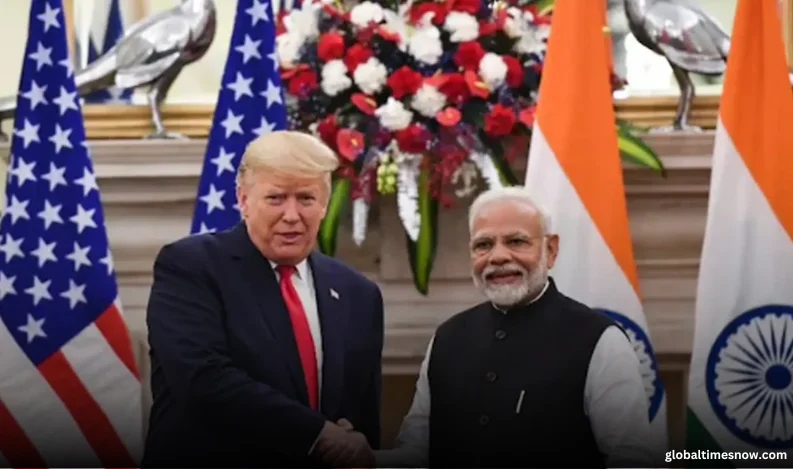Prime Minister Narendra Modi is set to visit the United States this week for a high-profile meeting with President Donald Trump. The summit will focus on defence cooperation, trade relations, and strategies to counter China’s growing economic and military influence.
One of the most critical topics on the agenda is the India-Middle East-Europe Economic Corridor (IMEC), a multinational infrastructure initiative designed as an alternative to China’s Belt and Road Initiative (BRI). A key player in this project is Gautam Adani’s Adani Group, which has expanded its presence in ports, power, defence, and logistics.
IMEC: A Counter to China’s Belt and Road Initiative
The India-Middle East-Europe Economic Corridor (IMEC) is a large-scale infrastructure project aimed at linking India to Europe via the Middle East. Unlike China’s BRI, which has been criticized for debt-trap diplomacy, IMEC is promoted as a transparent, market-driven initiative that allows nations to retain ownership of their infrastructure.
The $400 billion China-Iran Comprehensive Strategic Partnership has raised global concerns. China’s investments in energy, trade, and military cooperation with Iran have strengthened its foothold in the Middle East, prompting India to seek alternative trade routes.
Key features of IMEC include:
- A 4,500-kilometre trade corridor linking India, UAE, Saudi Arabia, Israel, and Europe.
- Faster trade routes, significantly reducing transit times.
- Investments in ports, rail networks, and energy projects to boost connectivity.
China’s growing influence in strategic maritime chokepoints such as the Malacca Strait, the Strait of Hormuz, and Bab el-Mandab has raised security concerns. Reports suggest that China indirectly funds Iran’s Islamic Revolutionary Guard Corps (IRGC), which supplies weapons to groups like Houthi rebels in Yemen.
Adani Group’s Role in IMEC
The Adani Group has expanded its presence in energy, infrastructure, and logistics, closely aligning with India’s foreign policy objectives. The company is playing a crucial role in challenging China’s dominance in global infrastructure.
Key investments by Adani in IMEC include:
- Acquisition of a 70% stake in Israel’s Haifa Port, strengthening India-Israel trade ties and securing India’s presence in the Mediterranean.
- Expanding military drone production, semiconductor manufacturing, and clean energy projects.
- Strategic port acquisitions across the Indo-Pacific, creating independent supply chains outside China’s influence.
Adani’s recent $10 billion investment in US energy infrastructure, expected to generate 15,000 American jobs, also reflects the India-US economic partnership.
India-US Defence and Trade Relations
PM Modi’s visit comes at a time when Trump’s trade policies have raised global concerns. Last month, Trump imposed a 25% tariff on Canadian and Mexican imports and added a 10% tax on Chinese goods, leading to speculation about potential trade frictions with India.
Despite trade concerns, India and the US have steadily strengthened defence ties over the past two decades. The focus areas of the Modi-Trump summit will include:
- Access to advanced US military technology, including jet engines, drones, and cybersecurity systems.
- Naval collaboration, particularly through the Malabar naval exercise (a joint effort with Japan).
- Expanding cyber defence cooperation in response to rising digital security threats.
The Modi-Trump discussions are expected to further enhance India-US strategic ties, with the IMEC project emerging as a crucial step in countering China’s influence in global trade and security.























